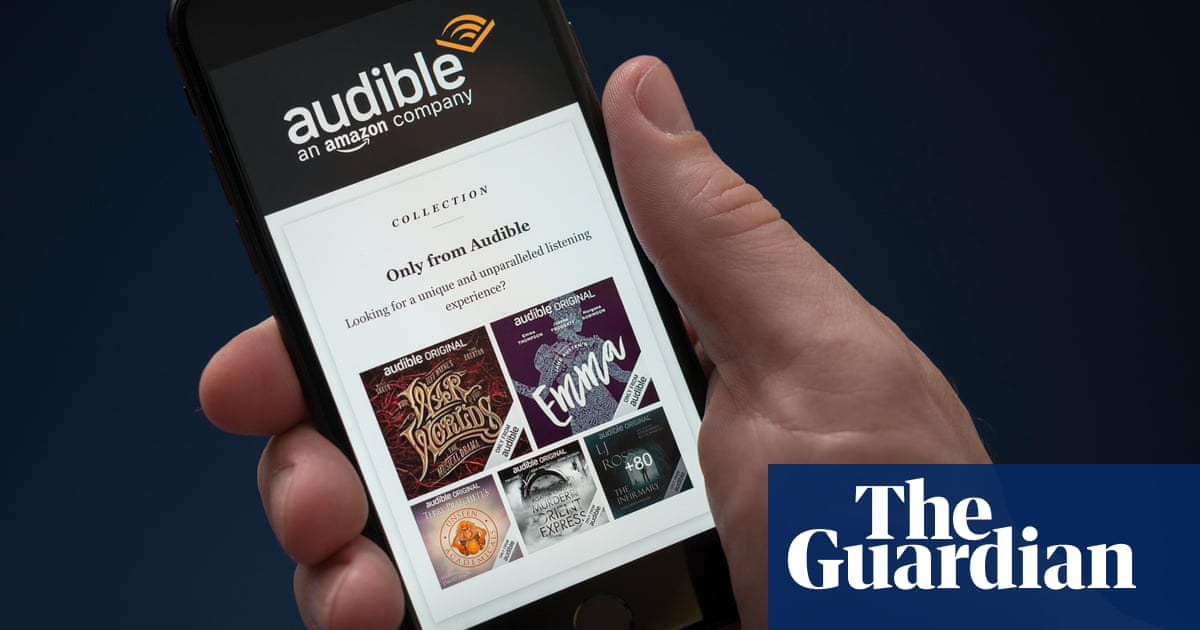Audible has announced plans to use AI technology to narrate audiobooks, with AI translation to follow.
The Amazon-owned audiobook provider has said it will be making its AI production technology available to certain publishers via “select partnerships”.
“We are bringing new audiobooks to life through our own fully integrated, end-to-end AI production technology,” reads theannouncement on Audible’s website. There are two options for publishers wishing to make use of the technology: “Audible-managed” production, or “self-service” whereby publishers produce their own audiobooks with the help of Audible’s AI technology.
Both options will allow publishers to choose from more than 100 AI-generated voices across English, Spanish, French and Italian to narrate their books. AI translation of audiobooks is expected to be available later in the year.
“Audible believes that AI represents a momentous opportunity to expand the availability of audiobooks with the vision of offering customers every book in every language, alongside our continued investments in premium original content,” said Bob Carrigan, the chief executive of Audible. “We’ll be able to bring more stories to life – helping creators reach new audiences while ensuring listeners worldwide can access extraordinary books that might otherwise never reach their ears.”
However, Audible’s announcement has been criticised by writers, translators and voice actors. “This shortsighted scheme reduces what we love about storytelling to the simple delivery of code,” said Chocolat author Joanne Harris. “In an age of declining literacy, I can’t think of anything more likely to put people off listening to audiobooks altogether.”
Kristin Atherton, who has narrated more than 400 audiobook titles on Audible, said human narrators “actively sell audio content by being good at their jobs.
“The art – and it is an art – of a good audiobook is the crack in the voice at a moment of unexpected emotion, the wryness of good comedy timing, or the disbelief a listener feels when one person can convincingly be a whole cast of characters,” she added. “No matter how ‘human’ an AI voice sounds, it’s those little intricacies that turn a good book into an excellent one. AI can’t replicate that.”
Stephen Briggs, who voiced some of the audiobooks of Terry Pratchett’s Discworld novels, said: “The use of AI to replace human creativity is in itself a dangerous path,” while the actor and audiobook narrator Deepti Gupta said: “We need to create more, not less, space for Bipoc narrators, and these AI tools are a new way to marginalise and colonise the voices that need to be heard.”
Sign up toBookmarks
Discover new books and learn more about your favourite authors with our expert reviews, interviews and news stories. Literary delights delivered direct to you
after newsletter promotion
Nichola Smalley, who translates Swedish and Norwegian literature into English, said though the idea that Audible’s new services will enable more books to reach wider audiences is “alluring”, her experience with new developments such as this “is that they produce a glut of mediocre results that no one really wholeheartedly enjoys”.
“Time after time, generative AI has been shown to produce lowest-common-denominator results, while human translators, while fallible, use their personalities and the serendipity of the human mind to produce unique solutions to linguistic and literary problems, thereby creating art,” she said.
The prominent literary translator Frank Wynne, known for his work translating French and Spanish books into English, said: “No one pretends to use AI for translation, audiobooks, or even writing books because they are better; the only excuse is that they are cheaper. Which is only true if you ignore the vast processing power even the simplest AI request requires.”
“In the search for a cheap simulacra to an actual human, we are prepared to burn down the planet and call it progress,” he added.
Meanwhile, Anna Ganley, chief executive of the UK’s largest writers’ body, the Society of Authors, said although this innovation “will expand the availability of audiobooks and help writers of all profiles reach new audiences”, the opportunities offered “must be transparent both to authors and consumers. Audible’s AI tool, and others like it, must not be used as a back door to teach and refine existing AI tools. Authors must be included in the process and not get shut out by tech companies and publishers. They must also be able to choose whether their work is narrated by a human or synthetic voice, and this must be clearly labelled to consumers.”
Since last year, Audible has allowed self-publishing authors in the US to use its “virtual voice” technology to turn their ebooks into audiobooks. More than 60,000 of these computer-generated audiobooks currently exist.
Audible, founded in 1995, is the longstanding global market leader for audiobooks. Its first comparable competitor arrived in 2023 when Spotify started offering audiobooks to its premium subscribers. Membership, which costs £7.99 a month in the UK, is reportedly at an all-time high.
